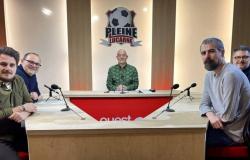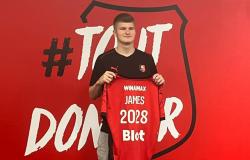Eager to influence the future of their activity, the National Association of Chartered Accountants, Trainee Auditors and Higher Accounting Students (ANECS) and the Club of Young Chartered Accountants and Auditors (CJEC) , have just revealed their proposals to modernize the profession of accountant. Their report, built around three main themes (management, data and evolution of missions), aims to “rethink certain practices to stay in line with the expectations and realities of tomorrow”. Julie Manciet and Julien Younes, respectively special project delegates Pulse for the ANECS and the CJEC, detail, for Actu-juridique, their approach and their ambition. Interview.
Actu-Juridique: Among the 28 proposals that you have just presented to change the accounting profession, are some of them symbolic of the vision that you wish to carry?
Julie Manciet : Beyond the symbol, these proposals aim at a real transformation of practices in our firms. They are there to raise awareness and push for immediate action. Let's take the example of the Management group's proposals. They can be applied now, and by everyone. However, one of the biggest obstacles today is the resistance of certain leaders to question their way of managing, or even to take it lightly. And it is these same practices that push our employees to burn-outto leave the profession to move towards other horizons. We should not be surprised by the recruitment difficulties! But if of the 28 proposals, I had to choose only one, I would choose “Become a trusted digital third party” and be the sole owners of our customers’ data. From this proposition, many others arise. To be able to benefit from specific approval and the data monopoly, we will need to establish cybersecurity processes among our clients. All these new prerogatives linked to cybersecurity and data backup would be governed by the data exploitation charter, benchmarks and specific professional standards, regularly tested via specific quality control. We cannot let artificial intelligence operate alone. It must be supplied with reliable, secure data and regularly tested through demanding quality controls. This is one of the keys to staying relevant in a changing digital environment.
AJ: In your words, some of your proposals may “appear iconoclastic”, why?
Julien Younes: The objective of our work is to present the vision that young people have of the profession and to make our voice heard. When we talk about “iconoclastic” proposals, we mean those which dare to shake up certain achievements, or even certain taboos of the profession. And this vision may differ from the current organization that we have. We do not wish to reform all of our professions but to ensure that new entrants do not feel limited by the ethical and regulatory framework. For example, we propose the implementation of kickbacks which are today widely practiced by a certain number of firms in different professions (insurers, integrators, etc.) although still ethically prohibited. Some fear for the independence of the profession, but each accountant is supposed to be able to evaluate the limits of their independence vis-à-vis their partners. Why not open the debate? Another example, setting up an “exit kit” for employees may also seem inappropriate given that most companies pay more attention to the entry of employees rather than their exit. However, supporting an employee when they leave the firm can not only strengthen the employer brand, but also leave a positive memory that will benefit the firm in the long term. We think it is time to rethink certain practices to stay in line with the expectations and realities of tomorrow. This is why we have set no limits in exploring new ideas. I would even say that we took literally the slogan of the campaign of the National Council of the Order of Chartered Accountants: “Unlimit yourself!” “.
AJ: If the accounting profession does not evolve, is it likely to no longer be attractive enough to younger people?
Julie Manciet : Absolutely not. The profession continues to evolve and modernize, which gives it immense potential to attract young talents. Certainly, younger generations have a different relationship to work than their elders, but accounting remains a pillar of economic life. It is a respected profession, perceived by society as a key role, just like doctors, lawyers or notaries. Being a chartered accountant is not just practicing a profession, it is embodying a function which actively participates in the development of French businesses and, by extension, in the growth of the economy. It is even a social responsibility. Saying today “I am a chartered accountant” is a real source of pride because we are the first strategic advisors to managers. We help build strong businesses and anticipate the future. It's more than just a job, it's a vocation, a profession-passion.
AJ: Do you really believe in a legal evolution of the 1945 ordinance which sets the regulatory framework for the profession?
Julien Younes: Ordinance No. 45-2138 of September 19, 1945 is the reference text for our profession which makes it possible to establish a clear framework of exercise and to be a safeguard against illegal exercise which is a real scourge for the profession. That being said, it is important to remember that this order is not fixed since it has already undergone various developments over the last decade. Therefore, why could the new developments that we are proposing not be integrated into this legislative framework in order to develop the role of chartered accountant among business leaders and to allow our sisters and brothers to exercise their outsourced DAF activity, CSR, heritage engineering consulting? Of course, any reform of the 1945 ordinance must be done with caution because the prerogative of exercise, which is essential to the economic stability of our country, should not be called into question. This is why I think our approach can modernize the profession without distorting it.
AJ: How did Cécile de Saint Michel, the president of the order of chartered accountants, receive your proposals?
Julien Younes: She was the first supporter of the project Pulsefrom its launch and even before. A few weeks after her election, Cécile de Saint Michel honored us with her first trip as president to Lille, to exchange with members of the ANECS and the CJEC. She strongly invited us to take part in professional debates and to make proposals. We took on this challenge and today we can only thank her for this encouragement. In addition to being mutual aid and sharing networks, the ANECS and the CJEC are now also places for exchange, debate and collective emulation around the major issues of the profession. That's a good thing! We hope that these proposals can be implemented in close collaboration with the NOC and its elected officials. Some initiatives, such as The sourcethe data lake of the profession, are already being deployed, and we are delighted. I would also like to thank Yannick Ollivier, president of the National Company of Auditors (CNCC), who has always strived to offer a privileged place to young people within a profession in full transformation. We look forward to continuing this collaboration with the CNCC to ensure that young people continue to have a strong voice in the auditing profession. Finally, I cannot conclude without mentioning the unions and professional movements which work daily to support our sisters and brothers. We are available to collaborate with them on these themes that are important to us.
AJ: What follow-up do you hope to give to this report?
Julie Manciet : I hope that our proposals will raise awareness for the entire profession. Some accountants prefer to bury their heads in the sand and continue to ignore the major transformations that are emerging in the very short term, such as electronic invoicing or the increasing integration of AI into our tools. But beyond this awareness, I hope that our elders and national authorities will seize this unique opportunity to create a real monopoly on data management, like notaries with real estate legal documents. There is an urgent need to act: when we see that software publishers will soon be able to submit tax packages themselves, it becomes essential to secure these data flows and guarantee their control by only legally approved professionals who will be the accountants!







